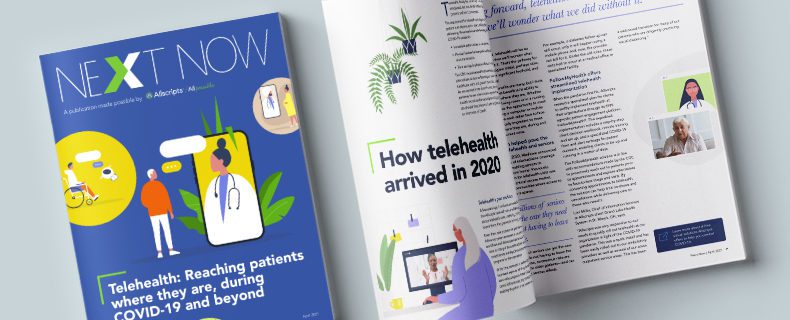Blog Posts
Emerging health trends in the wake of COVID-19


The COVID-19 pandemic has (understandably) dominated the healthcare news cycle for nearly two years. But behind the scenes, other healthcare trends have been emerging—many as a result of the pandemic itself. While there is no need to panic about the list below, it’s important to be aware of these trends so that you can take the proper steps to protect your health and the health of your family as well as the health of your entire community.
Outbreaks of measles in infants
The World Health Organization (WHO) and Centers for Disease Control (CDC) recently estimated that more than 22 million infants around the world missed their first dose of the measles vaccine in 2020. While anti-vaccine sentiment has played a role in this statistic, fear of contracting COVID-19 kept many parents from bringing their child to a doctor’s office for regular health checks and routine vaccinations. In some countries, measles vaccination campaigns were postponed due to the pandemic, which further compounded the problem. Measles is a highly contiguous virus (it’s more contiguous than COVID-19 and the flu) so an increase in vulnerable children could lead to outbreaks in the near future.
Cancer diagnoses in children
In the U.K., Oxford University recently completed a study that determined cancer diagnoses decreased 17% during the first wave of COVID-19. However, the researchers also found that childhood cancers diagnosed during this time were more than twice as likely to have been made after a child was admitted to an ICU. This suggests that the decrease in diagnoses is not due to a reduction of cancer cases, but rather a delay in detection. Most likely, patients avoided seeking medical attention during the height of the pandemic. In fact, England conducted 3.4 million fewer diagnostic tests between March and August 2020, as compared to the same period in 2019.
Diabetes in young adults
In the United States, obesity levels are on the rise and with that rise comes an increase in diabetes diagnoses. Earlier this year, the United States Preventive Services Task Force updated their Type II diabetes and prediabetes screening recommendation and lowered the age to begin screening from 40 to 35 for those who are obese or overweight. If left untreated, diabetes can lead to blindness, affect kidney function and cause nerve damage. But with early detection, some of these complications can be reversed or prevented entirely.
A common theme throughout these trends is the importance of continuing (or resuming) wellness checks with a physician. Early diagnosis and receiving routine vaccinations are key to achieving better patient outcomes. While the pandemic may have interrupted the cycle of wellness checks, the increasing availability of COVID-19 vaccines makes in-person visits possible again, and telehealth remains an excellent option for those that are still hesitant to visit a doctor’s office. Physicians can also use patient engagement platforms such as FollowMyHealth® to reestablish communication with patients and set appointment reminders.
Changes in health trends are not new, but sometimes it can be harder to pay attention to them when our newsfeeds are filled with primarily COVID-19 coverage. As we navigate the new world of healthcare in light of the pandemic, we cannot discount the need for diligent, comprehensive wellness checks. And with proper preventative care, we can continue combatting these and any other trends that may emerge in the future.












